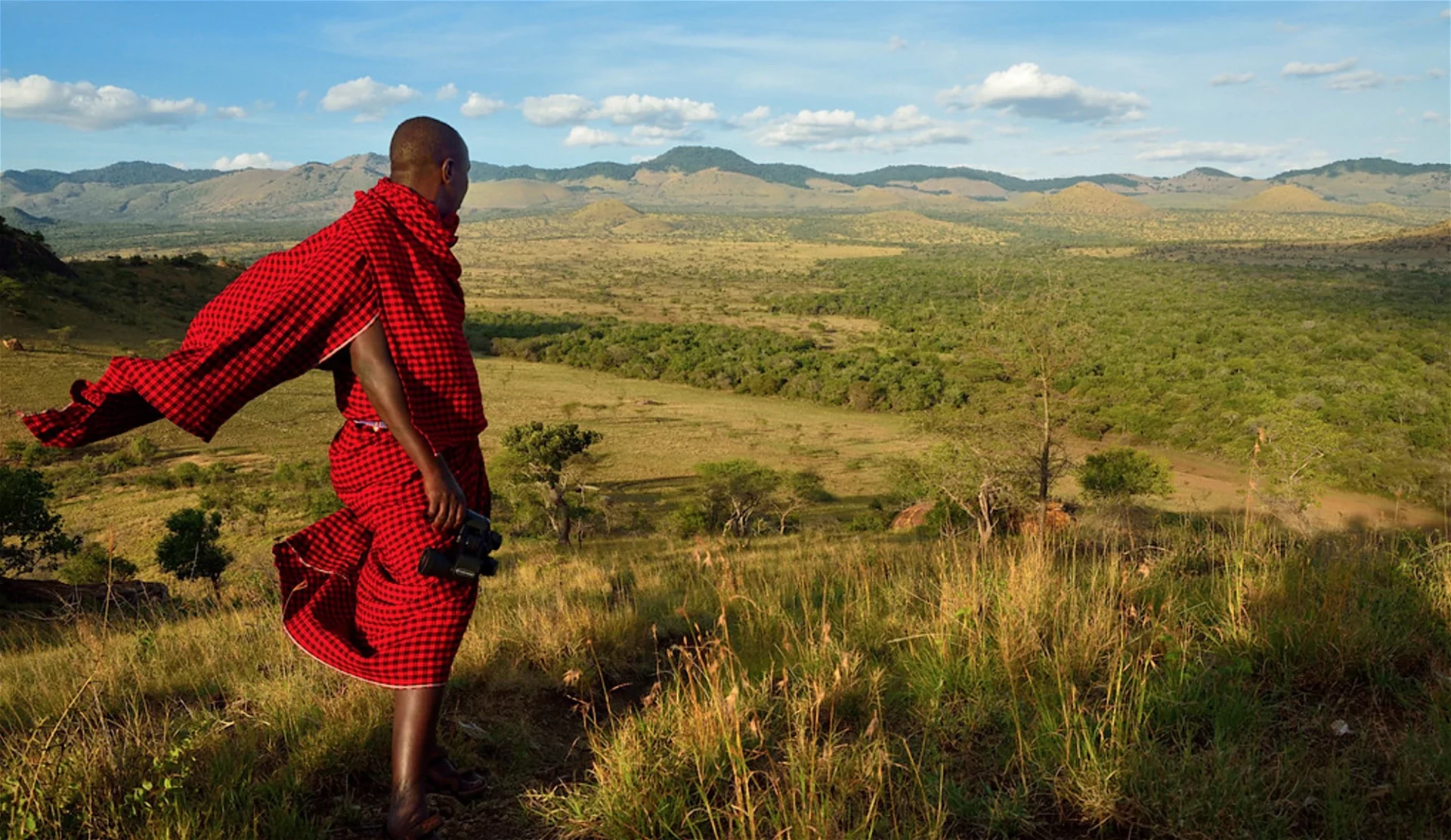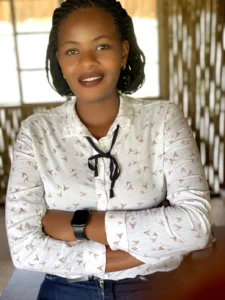I strongly believe that among the different measures taken in the fight against climate change in the world, REDD+ projects can be one of the most successful initiatives with enough participation.


My name is Agnes Nailantei from the Rombo Group ranch which is one of the nine stakeholders of the Chyulu Hills REDD+ project in Kenya. I’m an Environmentalist and young female leader who is passionate about conservation and women’s empowerment. I have a BSc in Environmental studies and aim to improve the social, economic and political state of my community through environmental education. I am a champion for education and intend to push for education-based and environmentally sensitive, informed ideas to help my community develop sustainably.
Making a difference in my community is my drive. Working with the REDD+ project I have seen the creation and implementation of projects that improve community livelihoods through conservation incentives and through payment for ecosystem services. Being from a pastoralist community that mostly depends on rains to graze their livestock, the effects brought about by climate change – such as changing weather patterns – has seen many of my community members lose their source of livelihood. I experienced this when raising money for my education, which was very difficult for my parents especially when we had long droughts and livestock would lose their market value. I chose to pursue an environmental course that would help me in finding solutions to addressing these problems in my community.

We were lucky to have a REDD+ project in my community helping tackle climate change issues and I am honored to get a chance to work here so that I can contribute to helping my community to build resilience and come up with mitigation measures to help adapt to the effects of climate change. This has so far seen children go to school, families not going to sleep hungry, and everyone in my community having access to health care services.
The Maasai community living on the western side of the project, has been classified by the Kenyan constitution as marginalized which means that they are excluded from mainstream social, economic, educational and cultural life. The community’s culture is a culture oiled by patriarchy in which men have the monopoly of all decision-making processes. This has resulted in gender inequality in resource allocation and limited access to education by one gender. The Chyulu Hills REDD+ project has tried to bring balance by empowering women through beekeeping projects, grass seed bank projects, bead work activities and to raise the boy girl ratios in schools to ensure that both genders get the right to education.
I am proud of how the project has allocated funds to finding sustainable solutions to empowering women and girls. For example, by ending period poverty by ensuring that no girl misses school due to lack of sanitary towels. In the implementation of this project, we carried out surveys and collected data prior to the distribution of the pads to understand the situation before and after girls use the pads. We conducted surveys where we interviewed each girl. In one interview I asked, “how many times do you miss school due to lack of sanitary towels?” and one girl responded that she used to miss school seven days in a month but no longer misses school because her mom now sells beads which affords her money to buy pads for her and her four sisters. The beadwork initiative was also started by one of the stakeholders of the project as an alternative source of livelihood to help women reduce dependency on men and generate an income. This young girl used to study three weeks and miss one week every month. I felt proud that the creation of an alternative source of income for one woman has saved five girls from missing out on going to school and getting an education.
I have now been working with the project for over 17 Months. I first joined the project as a field biomass sampler, working on a five month intensive field verification exercise that entailed collecting data used in measuring the amount of carbon in the project area. I’m passionate about conservation and particularly matters of climate change. I am now the Field Communication Officer for the Chyulu Hills REDD+ Carbon project and my role is to act as a link between the local community and the project office, communicating the tangible benefits of the REDD+ Project. I also document and write stories on the impacts of the project for social media content as well as taking part in the implementation and monitoring of projects. My day to day activities include interacting with community members on outreach to create awareness and explain the concept of the REDD+ project, the monitoring of projects and giving necessary support required in efforts to create alternative sources of livelihoods that end up reducing pressure on our natural resources.
I strongly believe that among the different measures taken in the fight against climate change in the world, REDD+ projects can be one of the most successful initiatives with enough participation. The community voice is therefore a strong tool that can call for governments, policy makers, world leaders and individuals to see the critical need of putting more effort into supporting and developing more REDD+ projects in the world. The community voice will also act as evidence that the REDD+ mechanism works, benefiting people who are closest to nature and can put more effort into conserving it. Community Voice will also break down the complexity of the REDD+ projects by simply explaining for instance how offsetting CO2 by a company keeps a child in school.
